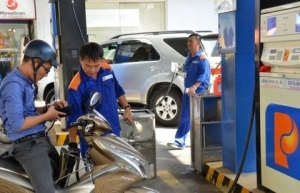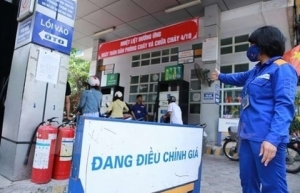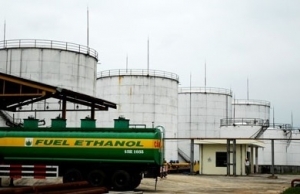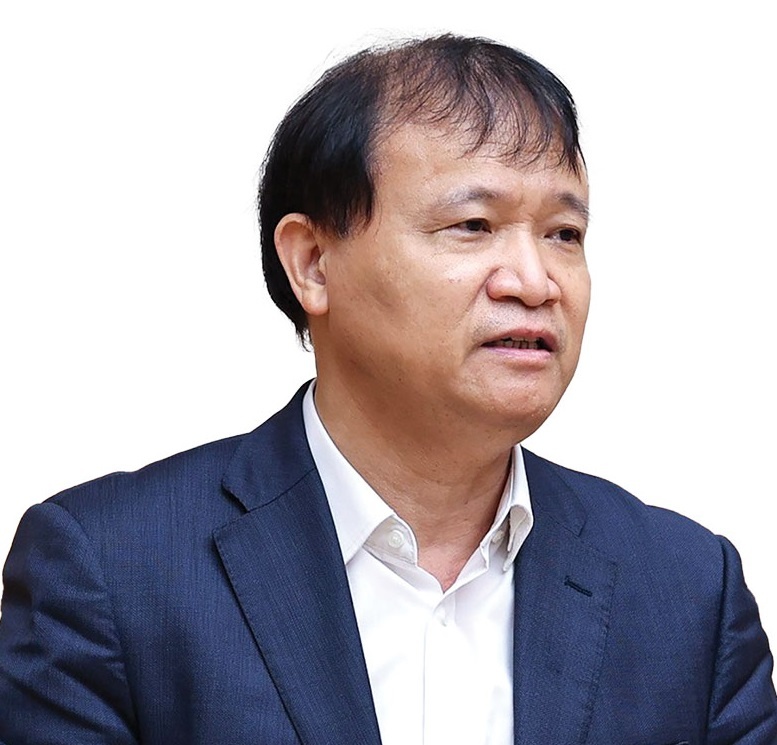Volatility forces balancing act for Vietnam’s petrol market
Officials of the Ministry of Industry and Trade (MoIT) took part in an emergency meeting late last month to discuss solutions to ensure domestic petrol supply. In 2022, the country’s petroleum demand stands at about 20.6 million tonnes, with 70 per cent coming from imports.
 |
| The fuel price in Vietnam has been adjusted dozens of times this year alone, Le Toan |
“Even during the world’s most difficult times, Vietnam has never had a shortage of domestic supply,” Minster of Industry and Trade Nguyen Hong Dien reassured the attendants at the meeting.
Dung Quat and Nghi Son oil refineries both announced plans to produce 3.9 million cu.m in the third quarter, accounting for 72 per cent of total demand, and 4.4 million cu.m in the fourth quarter, accounting for 80 per cent of total demand. This is to stabilise the domestic market and help people and businesses cope with rising energy prices.
The domestic petroleum supply chain was partially broken during February, and the readjustment lasted around 20 days amid a sharp increase in prices and scarce supply.
Decree No.95/2021/ND-CP on petroleum trading took effect in early 2022, expecting domestic prices to closely follow world price movements and a healthier market. However, the document did not fully anticipate the unusual price movements, while the continuous changes in petrol prices greatly affected the market supply and demand.
In its report on the second-quarter business results of 2022, the country’s leading petroleum distributor Petrolimex recorded $3.67 billion in net revenues, an increase of 80 per cent over the same period last year. However, its sales expenses of around $111 million have eaten away the profit. Subtracting financial and administrative expenses, the company reported a pre-tax loss of a little over $12 million. The group’s after-tax loss was nearly $6.1 million.
Tran Duy Dong, director of the Domestic Market Department under the MoIT, said, “Enterprises imported 500,000cu.m per month, plus around one million cu.m of inventory until August 25, meeting the demand of production and consumption to the end of the year, which is estimated at 1.6-1.7 million cu.m per month.”
Nevertheless, Vietnam continues to increase petrol imports. In 2021, the country’s imports were at 6.94 million tonnes. In the first eight months of this year, this figure was 5.9 million tonnes.
Bui Ngoc Bao, chairman of the Vietnam Petroleum Association (Vinpa), commented on the interference of state management agencies in the business activities of enterprises.
“Agents now often choose floating gasoline prices when signing contracts with import-export focal points and distributors. Therefore, there are times when agents can enjoy a remuneration of more than VND1,000 (43.4 US cents) per litre, but sometimes there is no profit. This is purely a matter of agreement between businesses. Vietnam currently has 38 import enterprises, most of which are private and small-scale ones,” Bao said.
The result is that many petrol and oil retail agents are closing down because petroleum retail remuneration is lower than the actual cost.
“This is a business-to-business problem and state management agencies shouldn’t interfere but rather let businesses solve their issues following economic contracts,” Bao argued.
Vietnam is trying to balance the petroleum market to cope with high energy prices. In a petition sent to the MoIT on August 29, the Vinpa said that extending the price adjustment to September 5 instead of September 1 as prescribed will create a delay in the selling price of retail petrol in the country. The organisation stated that this does not reflect the increasing trend of world gasoline prices, making it difficult for petrol traders to secure input sources and possibly creating a hoarding and speculative psychology that causes instability in the market.
Kenya Maeda, senior executive officer for Integrated Supply, Trading Crude and Global Business at Idemitsu Kosan Co., Ltd. said, “The global crude oil demand will increase in the medium to long term. Based on the expansion or closure plans from refineries in Asia, we anticipate that the supply of petrol products will not meet the growing demand.”
Maeda recognised that Vietnam needs to promote its supply chain for petrol, including all steps within the chain, to maintain a stable supply and energy security, even in a market without a stable outlook in the future.
Maeda added that as Vietnam is in the midst of an energy transition, “it’s still important to ensure supply stability”. What is more, domestic oil refining has an economic advantage over imports, contributing to limiting foreign currency flows abroad and reducing transport costs.
| Do Thang Hai-Deputy Minister of Industry and Trade
Management of petrol and oil prices is carried out according to the market mechanism under the management of the state. The structure of gasoline and oil prices in Vietnam stipulates very different tax rates, business costs, and norms. For example, the average import tax on oils is a maximum of 0.72 per cent, the average import tax on gasoline is 9.7 per cent, and the excise tax on oil is zero, while it is 8-10 per cent for gasoline. Solutions for price stabilisation and transparency of the petrol market ensure effectiveness and efficiency, but also need to be suitable to the actual situation. The ministry wants the price of oil and gasoline to be lower to create conditions for businesses to use it as input for production and business activities. Nguyen Duc Chi-Deputy Minister of Finance
The Ministry of Finance is currently collecting comments on the amended draft Law on Prices, which removes regulations on the establishment and use of a price stabilisation fund in order to help gasoline prices move in accordance with market signals. In the law, the ministry offers four price stabilisation measures that will be inherited after the law takes effect. First are measures to regulate and control supply and demand, including solutions to regulate the production of domestic goods and imports and exports. The next is made up of financial and monetary measures consistent with the provisions of law. The third sets specific maximum and minimum prices. Lastly, the fourth measure applies price support mechanisms in accordance with regulations of law and international commitments. |
 | Petrol retailers demand major changes Retail petroleum businesses have asked to stop contributing to the petrol price stabilisation fund, increasing the commission to reduce losses and permanently withdrawing the licence of unprofitable retailers. |
 | Economists petrol stabilisation fund to be scrapped Economists and industry experts have voiced concerns over the petrol stabilisation fund continuing as a tool to keep prices down, deeming it too ineffective to make a real difference. |
 | Ministry proposes tariff cuts to bring down petrol prices The Ministry of Finance (MoF) has proposed a reduction of the most favoured nation (MFN) tariff on a number of petrol products widely used in industrial production from 20 per cent to 10 per cent in an attempt to bring down the economy's input cost. |
What the stars mean:
★ Poor ★ ★ Promising ★★★ Good ★★★★ Very good ★★★★★ Exceptional
Related Contents
Latest News
More News
- Masan Consumer names new deputy CEO to drive foods and beverages growth (February 23, 2026 | 20:52)
- Myriad risks ahead, but ones Vietnam can confront (February 20, 2026 | 15:02)
- Vietnam making the leap into AI and semiconductors (February 20, 2026 | 09:37)
- Funding must be activated for semiconductor success (February 20, 2026 | 09:20)
- Resilience as new benchmark for smarter infrastructure (February 19, 2026 | 20:35)
- A golden time to shine within ASEAN (February 19, 2026 | 20:22)
- Vietnam’s pivotal year for advancing sustainability (February 19, 2026 | 08:44)
- Strengthening the core role of industry and trade (February 19, 2026 | 08:35)
- Future orientations for healthcare improvements (February 19, 2026 | 08:29)
- Infrastructure orientations suitable for a new chapter (February 19, 2026 | 08:15)



 Tag:
Tag:



















 Mobile Version
Mobile Version